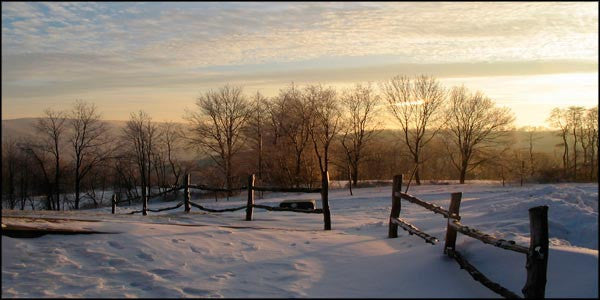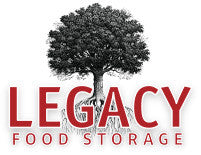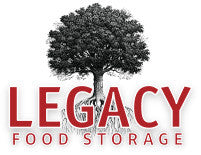
Winter Storm Tips
Cold weather is upon us and winter weather can fluctuate as the season progresses. Winter storms can range from a beautiful snow dusting to blinding, ice covered streets with freezing rain and large drifts of snow that can last for several days. Two of the main concerns with winter weather are dangerous driving conditions and loss of electrical power to homes.
If you are in, or plan to be in an area of the country that snowstorms are common, it’s best to have some preparations for road travels or extended stays indoors. Many deaths can occur from winter storms from traffic accidents due to inclement weather, or prolonged exposure, both inside and outside the home. A storm can turn dangerous very quickly, and it is best to make preparations before the heavy winter season hits to minimize the discomfort and possible fatal outcomes of not having the proper supplies with you.
The following is a list of what you can do both at home, and away to keep you and those you care about in a better position to weather the storm.
Welcome Visitors Safely
Make sure to welcome visitors with pathways that are free of snow and ice. Have the right tools such as a shovel and de-icing or traction items, such as kitty litter or sand to avoid visitor injuries.
Outside Fun
Walk carefully on snowy, icy walkways to avoid any injuries. Falling can be very dangerous in colder climates, especially if it happens in an isolated area, as help is not always readily available.
Dress in layers to keep warm and don’t forget about warm socks and a hat. The more of your body you can keep covered and sheltered from the cold, the warmer you will be. Pay attention to fingers, toes and extremities and look for pale appearance or loss of feeling. Be familiar with the signs of hypothermia: uncontrollable shivering, memory loss, disorientation, incoherence, slurred speech, drowsiness, and apparent exhaustion. If you suspect these symptoms get to a warm location and medical help immediately.
At Home
Make sure to include bad weather scenarios in your family’s emergency plan. While not always a major disaster scenario, storms can turn dangerous, and may quickly become one.
Power outages are common with winter storms and it is best to make preparations before they occur. While you have the benefit of having the shelter of your home, things can go wrong when the power goes out and temperatures plummet. Unlike when the electricity goes out in many other disasters, you won’t have to worry about refrigeration during a winter storm. Just be sure to store your food away from your emergency heat source and any animals or insects that may be around.
If using an emergency heat source inside, like a fireplace, woodstove, or kerosene heater, always make sure you have proper ventilation. Conserve the fuel by closing off some rooms, either by closing doors or hanging up blankets between rooms. Consider using a carbon monoxide detector anytime you are using a heat source inside. Carbon monoxide is clear, odorless and very deadly. In addition, make sure to have plenty of blankets and warm clothing and don’t forget the benefits of cuddling up!
Just as in any disaster or event, having plenty of food, water and other backups is a good idea. Heading out to the store for supplies during a storm, when situations can rapidly change, is a bad idea. Make sure to keep a stocked pantry and some long-term food storage. This will ensure that you have plenty to eat and won’t have to leave and put yourself in harms way.
Along with the food, ensure that you have the tools to prepare that food. Non-electric kitchen tools such as a manual can opener, coffee press, and a backup cook stove. If cooking indoors, make sure that you have indoor safe fuel, or make sure there is plenty of ventilation. Because it can be extremely dangerous, never cook or heat with charcoal inside your home
Make sure to have battery-operated items, such as flashlights and a radio, along with plenty of spare batteries. Keeping tabs on what is going on outside will allow you to get any updates or reports that go out. Candles are great for lighting but can also be dangerous if left unattended. Try to look for non-flame solutions such as battery operated candles or LED lanterns. If candles are your lighting solution, place a fire extinguisher in every room where you are burning a candle.
Emergencies can happen any time and are typically unexpected. Make sure that you stay up to date on first aid items, as bandages can yellow and other first-aid supplies can expire. Proper injury management can be important until you can get the injured medical attention. Additionally, if you are reliant on any medications, ensure you have at least several days’ worth of medications at any given time.
Lets not forget our furry friends! Don’t forget to bring your pets inside during winter weather, and move other animals or livestock to well sheltered areas with non-frozen drinking water. Make sure to have some extra food, water and litter on hand for your pets. Legacy Premium has backups for pets are too: http://www.buyemergencyfoods.com/pet-food-storage/
Passing time can go slow but there are plenty of non electric things to keep you busy while the weather clears: books, magazines, cards, board games, crayons, paper, etc.
Vehicle Travel
Keep tabs on weather reports before long distance driving or driving into isolated areas. Driving in winter conditions means dealing with ice, sleet, snow and dangerous road conditions that can get worse in an instant. Make sure you do a regular weather check on your car checking for antifreeze, battery maintenance, full tank of gas, and proper tire inflation.
Drive in a winter storm only if it is absolutely necessary. If you must drive, avoid driving when you are fatigued to help reduce driving risks. Keep travel to daylight hours and keep others informed of your schedule. Let someone know your destination, your route, and when you expect to arrive. If you get stuck along the way, you will be easier to find when they search on your pre-determined route.
In extreme weather, rescuers can be busy, so have some extra supplies or a disaster supply kit in your vehicle. In addition to your regular supply kit, add some additional items for this time of year that are focused on winter travel. Keeping the supplies in a backpack is also a good idea, in case you need to leave your vehicle.
Traditional Supplies
- Flashlight and batteries
- Flares or reflective triangle to warn other motorists if you break down
- First aid kit
- Nonperishable food
- Bottled water
- Jumper cables
- Whistle
- Cellular phone
- Money
Additions for Winter Travel
- Bag of sand, road salt or non-clumping cat litter. The bag’s extra weight means better traction, and the contents can be spread under slipping tires.
- Ice scraper and small shovel for digging out wheels or for scattering sand.
- Extra food and water (do not eat snow to hydrate. Your body will use more calories to maintain your temperature.)
- Tire chains (every driver should practice putting them on)
- Blankets or sleeping bags
- Hand warmer packs
- Tow rope
- Bright colored cloth to attract attention
- Extra Jacket, hat, gloves, socks and sturdy, snow-proof boots for each traveler
- Fire starting materials
For more information if you become trapped in your car, visit: http://blog.buyemergencyfoods.com/be-prepared-for-winter-driving/
Winter is a beautiful season. Just make sure, as for any scenario, to have some back ups and a plan to see you though!
The post Winter Storm Tips appeared first on Buy Emergency Food.
Tags
- All
- 25 year food
- 25 year shelf life food
- 72 hour kit
- Best food storage types
- Best long-term food storage
- Blizzard preparedness
- Budgeting
- canning
- Certified GMO-free Emergency foods
- Certified GMO-free foods
- Coffee
- Comparison of emergency food methods
- Composting tips
- Dangers of genetically modified foods
- dehydrated food
- Edible Wild Plants
- emergcy preparedness
- Emergency Cooking
- Emergency Food
- Emergency food Christmas gifts
- emergency food storage
- Emergency Food Supply
- Emergency food supply recommendations
- Emergency Planning
- Emergency Preparedness
- Emergency preparedness advice
- emergency preparednesss
- Emergency Supplies
- Emergency supplies checklist
- Emergency Survival
- emergency survival gear
- Emergency survival kit checklist
- Emergency Survival skills
- exercise
- Family emergency preparedness
- Family emergency preparedness plan
- Family Preparedness
- Food Storage
- Food storage 25 year shelf life
- Food storage amounts
- Food storage Christmas
- Food storage containers long term
- Food Storage Secrets
- Food storage serving size
- Food storage types compared
- freeze dried food
- Freeze dried food storage
- freeze dried meats
- Freeze-dried emergency food storage
- Fruit Trees
- Gardening
- Getting Started
- Gluten-free food Storage
- Gourmet emergency food
- Healthy food storage
- How much emergency food to store
- Improved emergency preparedness
- Jared Markin
- Jared Matkin
- Legacy Premium
- Lessons learned from Hurricane Sandy
- Lessons learned from natural disasters
- long-term food storage
- Long-term Food Storage Guidelines
- Long-term Food Storage tips
- Long-term water storage
- Mental Emergency Preparedness
- Mental toughness
- Money-saving tips
- Natural disaster planning
- Natural Disasters
- Perfect Christmas gifts
- Pet Emergency preparedness checklist
- Pet Emergency preparedness kit
- Pet Emergency Survival tips
- Pets and Emergency Preparedness
- Plant Foraging
- portable solar panels
- portable solar power
- portable water filters
- protein drinks
- Risk of genetic modification
- Seed saving and storage
- Seed saving guide
- Self-reliance
- Self-reliant practices
- Shelf Life
- Solar Cooking
- Solar Ovens
- Special Dietary needs
- Stranded in a car in a blizzard
- Survival food
- Survival Gear
- survival kit
- Survival kits
- Survival Ovens
- Survival Skills
- survivalist gear
- suvival kit
- Tree Pruning tips
- Tree Trimming basics
- unique ideas
- water bottle with filter
- water filter
- water filter straw
- water filters
- Water Filtration
- water pitcher with filter
- water pitchers with filters
- Water purification
- Wild Food Foraging
- Winter composting
- Winter driving
- Winter preparedness tips
- Winter storm preparedness tips
- Winter Survival








